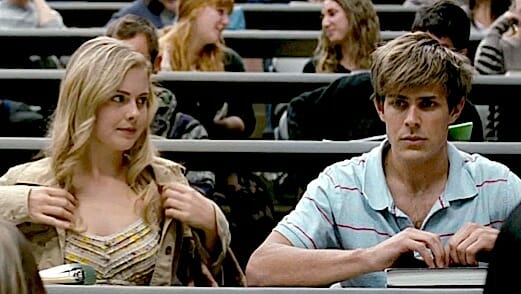Brightest Star

In sports, relationships and indeed life, sometimes it’s the little things that end up mattering most—the hustle down the first baseline on a routine grounder, the changed windshield wiper blades as an unsolicited favor for a loved one, and the extra-pass proofreading of a job search query letter. Lest we forget, such can be the case with cinema, too.
For all the Hollywood obsession with high-concept and special effects, sometimes there’s something enchanting about a simple story simply told, and a movie of small rather than grand gestures. Case in point: the pleasant and enchanting Brightest Star, a narratively slight but well acted and keenly observed romantic dramedy about a twentysomething guy’s romantic fumblings and occupational uncertainty. The feature film debut of Maggie Kiley, Brightest Star isn’t a movie of conventionally structured catharsis. But it does understand, on an intuitive level, the enormous weight of young adult ambivalence, and how that can be a suffocating thing in its own right. Formerly titled Light Years, Brightest Star centers around an unnamed guy (Chris Lowell, of Veronica Mars) who meets Charlotte (Rose McIver) in a college astronomy class, falls for her hard, and then successfully negotiates his way out of friendship alley and into a relationship. Charlotte eventually becomes frustrated with his aimlessness, however, and ends things.
When Charlotte leaves him years later, the guy is heartbroken and depressed, and ends up being taken in by Lita (Jessica Szohr) and Ray (Alex Kaluzhsky). In short order, the guy lands a cushy office job from Lita’s dad (Clark Gregg), and before he knows it he’s in a healthy and happy relationship with her, and questioning the wisdom of his misbegotten plans to win Charlotte back.
-

-

-

-

-

-

-

-

-

-

-

-

-

-

-

-

-

-

-

-

-

-

-

-

-

-

-

-

-

-

-

-

-

-

-

-

-

-

-

-








































